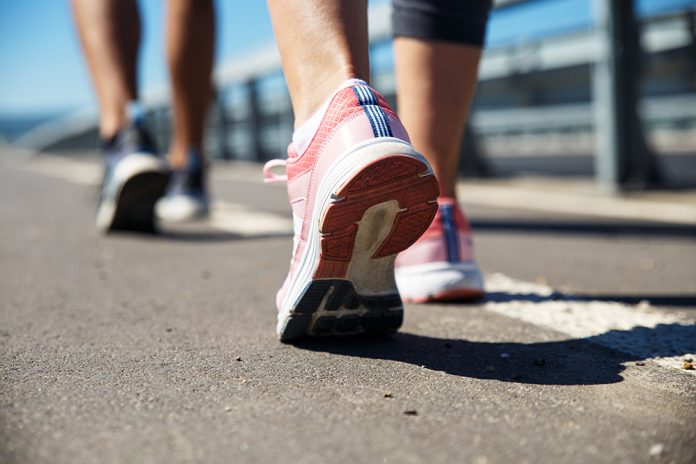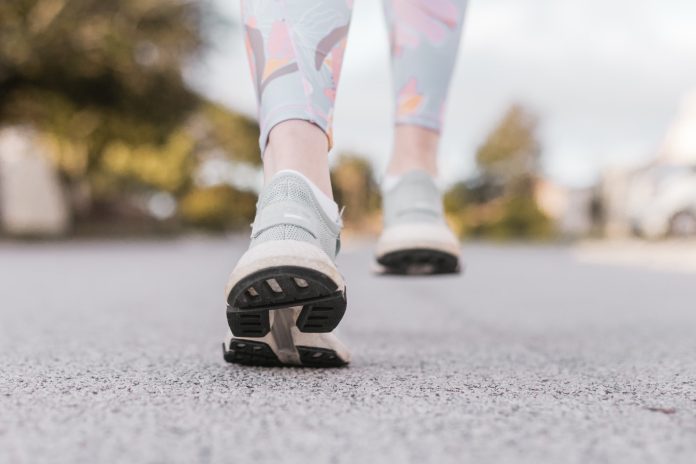When people think of exercise, walking isn’t exactly the first activity that comes to mind. But it is worth noting that exercises don’t have to be strenuous, as moderate workouts significantly impact our well-being. For instance, walking is a form of low-impact physical activity that has many benefits benefits for older adults.
Walking is one of the easiest exercises for older adults. Whatever the mobility level of your loved ones, it’s an excellent way to work out at their pace. Moreover, it is inexpensive, as you don’t need to buy costly equipment before beginning the routine.
When winter comes around, the weather may become unsuitable for walks. In such a situation, you should encourage your older relatives to join an indoor walking club, where they stand to gain some benefits. Click here to find out about these advantages.
Now, let’s discuss 8 amazing benefits of walking for your parents and grandparents.
1. Strengthens the bones and muscles

While walking is a low-impact activity, it offers incredible benefits to your joints, bones, and muscles. It tones the muscles and strengthens the bones, increasing your range of motion. This helps to shift weight and pressure from the joints to your muscles.
Also, walking lubricates the joints, helping older adults to stay active. In addition, studies reveal that regular walking can stop bone mass loss in osteoporotic patients, limiting arthritis pain and hip fractures.
2. Improves heart health
One of the health benefits of walking is that it increases the heart rate, leading to better blood circulation. Walking makes one breathe faster, widens the capillaries and pumps oxygen-rich blood to the muscles. This action allows the release of waste products like lactic acid and carbon (IV) oxide.
Another one of the benefits of walking is that it strengthens the heart, reducing risk factors like inflammation, obesity, diabetes, and high cholesterol. Improving heart health also means lowering blood pressure in older hypertensive adults and reducing the risk of cardiovascular problems.
Furthermore, researchers reveal that walking maintains artery health, thus, lowering the chances of developing a stroke or heart attack.
3. Boosts the immune system

As the body ages, the immune system may become weaker. However, incorporating exercises like walking into daily routines can help older adults maintain a healthy and robust immune system. Studies suggest that adults who walk daily are less likely to fall sick than those who don’t.
A major Harvard study of 1,000 older adults revealed that those who walked for at least 20 minutes daily, and five days a week, experienced better health than the ones who didn’t. Even when they fell ill, the symptoms were milder and lasted shorter than those who didn’t exercise.
4. Enhances mental health
Regular walks can improve mental health in older adults. It’ll make their thoughts clearer and calmer, so they can see the world in a better light.
Basically, walking is a great mood enhancer. It helps relieve stress, fatigue, and anxiety. Also, it can reduce feelings of depression and a lack of motivation. This cardiovascular exercise releases endorphins (feel-good chemicals) that make one feel relaxed and happy.
5. Improves sleep

As we grow older, our sleep patterns may change, causing difficulty getting quality rest. However, research has revealed that cardiovascular exercises can improve these patterns, especially when done regularly.
Because walking releases feel-good chemicals, it promotes better sleep habits, one of the benefits of walking. Older people who have trouble sleeping will experience improved sleep with regular walks. Also, this light exercise relieves older adults of pain and stress – both of which can hinder good sleep.
Furthermore, a recent study confirms that healthy adults who walk daily experience a positive effect on their sleep length and quality. Also, regular daily walks reduce the risk of sleep disorders like insomnia, restless leg syndrome, and sleep apnea.
6. Controls weight
Weight control is one of the essential walking exercise benefits. Fats tend to account for more weight in older adults, thus decreasing the amount of body muscle. Thankfully, aerobic exercises like walking can help burn calories and keep your older loved ones in great shape.
A short 30-minute walk can shed about 200 calories. Besides, as one walks, the body doesn’t only burn calories but also builds lean muscles to keep the body strong and fit.
7. Maintains mobility

One of the health benefits of walking everyday includes improved mobility. Health problems like arthritis may affect mobility in older persons. Once mobility deteriorates, independent functions become limited.
However, aerobic exercises like walking can help enhance mobility in older adults. By lubricating body joints, walking ensures smooth movement and relieves arthritis pain.
Also, walking strengthens the joint muscles, reducing pressure on the joints. Furthermore, asides from strengthening the leg muscles, this activity builds up other body muscles around the arm and hip, thus, ensuring better all-round mobility.
8. Fosters social connections
Loneliness is quite common among older adults, and this feeling can adversely affect their mental health.
An opportunity to form social connections with people of shared interests in walking clubs is one of the benefits of walking. By joining local walking clubs, our loved ones can connect with other older people, improve their social life, and get to know more people in their community.
Also, regular walks in the park or neighbourhood allow older adults to meet and connect with new people from different walks of life.
Final thoughts
Walking is inexpensive and doesn’t require any bulky gym equipment to get started. With a comfortable pair of sneakers, sunscreen, and sweat-wicking wear, your older relatives should be good to go.
When your loved ones begin a walking routine, you should set realistic goals for them. Also, you shouldn’t push too hard, so they don’t grow tired or frustrated. Instead, find ways to keep them motivated. Walking with their grandkids, a companion, or pets will be exciting.
Finally, you should consider safety. Ensure your older loved ones dress appropriately for the weather. Hats and sunglasses will be suitable in hot weather, while cardigans are more appropriate during the cold months.








